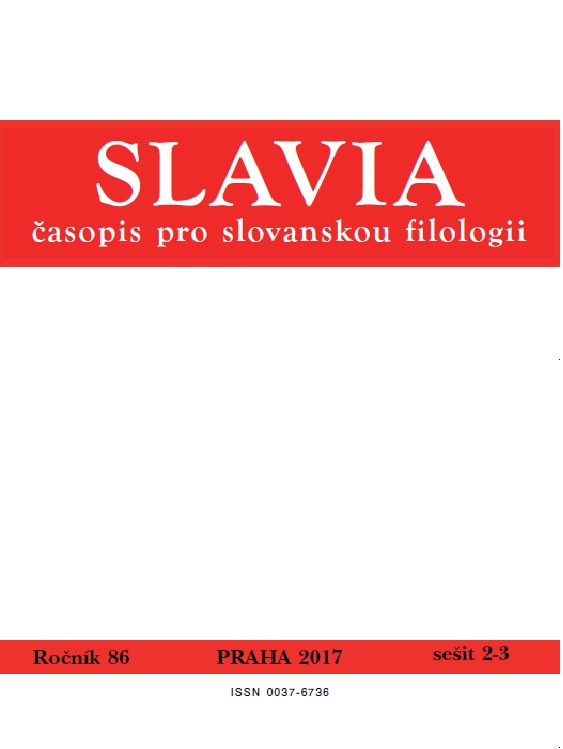Slavic Resultatives and Their Extensions
Slavic Resultatives and Their Extensions
Integration into the Aspect System and the Role of Telicity
Author(s): Björn WiemerSubject(s): Language studies, Theoretical Linguistics
Published by: AV ČR - Akademie věd České republiky - Slovanský ústav and Euroslavica
Keywords: resultatives / perfects; aspect; telicity; diachronic morphosyntax; inner-Slavic distribution
Summary/Abstract: Resultatives represent clusters of temporal features (a state resulting from a change of state) which require telic stems as lexical input. In Slavic, all resultative constructions are based on participles. Resultatives often turn into perfects and passives. Most essential in this development is the extension of admissible lexical input to the resultative construction, by which, concomitantly, the requirement that the verb stem be telic is lost. Simultaneously, Slavic participles distinguish perfective (pfv.) and imperfective (ipfv.) aspect. As a grammatical category, aspect is not restricted (or defined) by telicity, although telicity was a factor motivating the rise of the pfv.:ipfv.-opposition, and the association between telic events and pfv. aspect is very close. Considering this, the question whether ipfv. participles have been, or are, used in constructions other than resultatives needs to be investigated. We should ask whether the presumably original (i.e. Common Slavic) resultative function has been preserved by ipfv. participles, or whether they have participated in a perfect or, alternatively, in a canonical passive or some similar construction operating on voice. This paper sheds light on these questions. It first provides a survey of resultatives and perfects in Slavic through space and time, asking for the relation between telicity and the development of the pfv.:ipfv. distinction. Ipfv. participles used in constructions that developed out of resultatives behave in one of two ways: Either ipfv. participles show the same resultative value as their pfv. counterparts, a behaviour which can be considered an archaism prior to the strengthening of the aspect opposition, or, on the contrary, the aspect of the participles rather reliably restricts the range of functions which are known for the respective Slavic variety in the active voice. In these cases, ipfv. participles in predicative use have been integrated into the sets of functions that generally govern the choice of aspect in the particular Slavic variety. This dominance of aspect applies even if telicity constrains the choice of the aspect of the participle or the applicability of the entire construction.
Journal: Slavia - časopis pro slovanskou filologii
- Issue Year: LXXXVI/2017
- Issue No: 2-3
- Page Range: 124-168
- Page Count: 45
- Language: English

